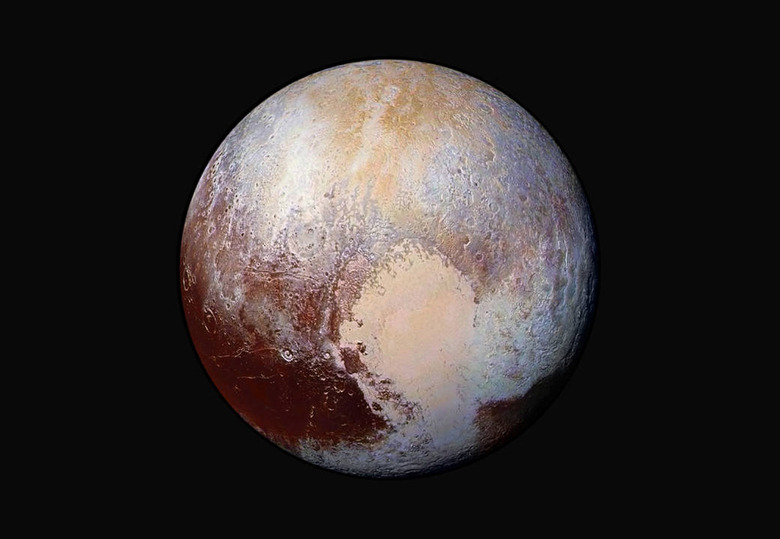NASA Boss Weighs In On Pluto's Planet Status
One of the internet's favorite topics of debate, at least when it comes to astronomy, is whether or not Pluto should be considered a planet. Once considered a planet, Pluto has since been "demoted" by the scientific community and is now considered a dwarf planet.
Now, despite nobody really asking him to, NASA boss Jim Bridenstine has weighed in on the debate, and he's definitely pro-Pluto. In a brief video clip posted on Twitter, Bridenstine offers a somewhat tongue-in-cheek take on Pluto's status, saying that he definitely believes Pluto is a planet if for no other reason than that's what he was taught as a kid.
My favorite soundbyte of the day that probably won't make it to TV. It came from NASA Administrator Jim Bridenstine. As a Pluto Supporter, I really appreciated this. #9wx #PlutoLoversRejoice @JimBridenstine pic.twitter.com/NdfQWW5PSZ
— Cory Reppenhagen (@CReppWx) August 23, 2019
For decades, schools taught that Pluto was the ninth and most distant planet from the Sun, but that all changed a few years back when astronomers began to discover many Pluto-sized objects drifting in the distant reaches of the solar system. Those discoveries forced scientists to rethink their definition of what a planet really is, and Pluto ultimately didn't make the cut.
The international astronomy community decided that for a world to be officially a planet it had to meet a trio of conditions. The first two — that the object has to orbit a host star and be roundish in shape — were easily met by Pluto.
However, Pluto fell short of the third requirement, that the object has to have cleared its "orbital neighborhood" of other objects. This meant that Pluto (and other objects of a similar size hanging out near the Kuiper Belt of debris at the edge of our system) was only a dwarf planet.
There's still plenty of disagreement, even among astronomers, regarding the fairness of these criteria, but the fact remains that at the moment, Pluto just isn't a planet. Bridenstine's opinion won't sway the needle at all, and it's clear he doesn't expect it to, but it's still worth knowing where NASA's chief stands on this particular topic.
